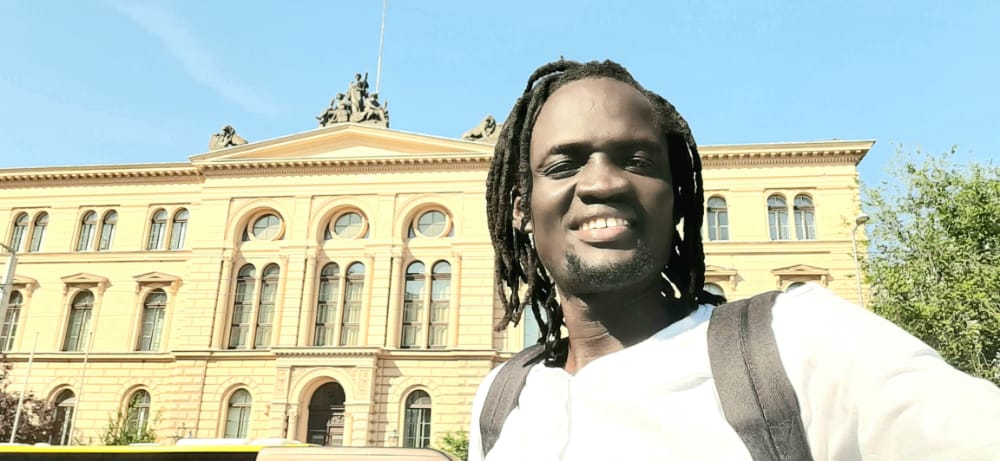By Tolossa Asrat – KANERE’s Volunteer Writer, January 2022
Refugees from South Sudan, the Democratic Republic of Congo (DRC) and Somalia have been resettled in a third country, Germany, through the United Nations High Commissioner for Refugees (UNHCR) resettlement programme.

Germany has been admitting refugees from the Kakuma refugee camp since the country’s President Frank-Walter Steinmeier visited Kakuma in 2020. The country has been generous to refugees from South Sudan, DRC and Somalia who have lived in the Kakuma camp for over a decade. In fact, Germany welcomed a million refugees during the 2015-2016 Europe refugee crisis, which sparked discussions around the world about whether the international refugee system needed to be fundamentally updated, according to the Refugee Studies Centre in Oxford.
During this critical time, under the leadership of Chancellor Angela Merkel, Germany welcomed a million refugees fleeing Syria under the principle of ‘Wir Schaffen Das’, which translates to ‘we can do this’ in German. “We will cope because we are a strong country”, Merkel said. “We can cope with the arrival of large numbers of refugees.”
Germany is one of the European countries that pledged to launch various civil society-driven programmes to support displaced people and refugees under UNHCR’s protection mandate, following the resolution on the Office of UNHCR, which affirms the Global Compact on Refugees adopted by the UN General Assembly on 17 December 2018.
Since May 2019, the German Federal Government has been testing a Community Sponsorship programme for refugees, with the goal of not only offering additional resettlement opportunities for vulnerable refugees but also providing them with financial and social support upon their arrival in Germany.
Some of the refugees from the Kakuma refugee camp and the new Kalobeyei settlement were resettled in Germany through the community programme called ‘Neustart in Team’ ( NesT,) which literally mean a team for starting over.
Four of KANERE’s 12 team members have received an opportunity to resettle in Germany. We asked three of KANERE’s former staff refugees in Kakuma who also benefited from the joint UNHCR-NesT resettlement scheme and who worked as journalists while they were here in the camp. We asked what surprised them most about their first experience and to tell us about the beer and bread in Germany.
Bakuu Wol Makwach, a South Sudanese refugee who had been in Kakuma since the age of one, had a chance to resettle in Germany through the NesT and UNHCR referral system.
Makwach, one of KANERE’s reporters who was arrested while covering the teachers’ strike in Kakuma, has been happy since his arrival in Germany. “Here there is a whole lot of freedom, you will walk freely across [borders of] the European nations without issues.”
However, one challenge is “I am not able to continue my journalism work because of language barriers as the law requires that people have a B1 in the German language”.
Lisala Alphonse, a Congolese refugee and former member of KANERE, had been in the Kakuma refugee camp for a decade. She had an opportunity to resettle in Germany in 2022 through the same humanitarian programme. Lisala was surprised to “see snow for the first time”.
What surprised her most upon her arrival was how German’s respect “their language, cultures, rules [and] even time management; here everything is different from Africa” Due to her skin tone, Lisalaa has faced difficulties when dealing with refugees from Syria, Afghanistan, Iran and Turkey.
“Now, I can go freely to all European countries.” Abdinasir Bare, a Somali refugee who had been living in the Kakuma refugee camp for over a decade, has benefited from the same humanitarian programme and was also one of the KANERE members.
Germany has a long history of supporting refugees worldwide. For instance, with regard to education, the country has been supporting the refugee community in Kenya for the past three decades through the Albert Einstein German Academic Refugee Initiative (DAFI) scholarship programme, which has also benefited over 21,500 refugee students from all over the world.
Since 2019, UNHCR Kenya has supported refugees resettling to Germany and has resettled various refugees residing in Kenya. Since President Steinmeier’s first visit to Kakuma camp, over 1,000 refugees from Somalia, DRC and South Sudan were assisted to resettle in Germany, as per the August 2022 UNHCR Kenya monthly statistics.
Currently, Germany is the second biggest donor globally to UNHCR. Since the Global Compact on Refugees, Germany has been the top destination country for refugees living in Kenya.
In November 2022, the UNHCR chief thanked the country for a 94 million euros donation that will be used for supporting “Syrian refugees and people uprooted by conflict and drought in the Horn of Africa.”
